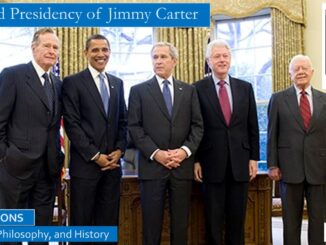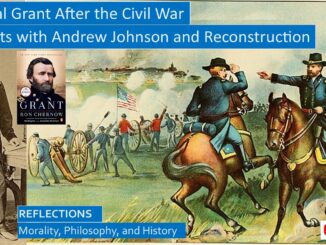
Jimmy Carter, His Presidency, and Founding the Carter Center
Jimmy Carter was elected as President when many voters wanted an honest President after the nation witnessed the Watergate scandal and coverup by a criminal president who was facing impeachment. Not only was Jimmy Carter seen as an honest man, but he was also a sincere born-again Christian. But his support for civil rights turned many white Christians against him. In the introduction, Jimmy Carter proclaims: “Vice President Mondale summarized our administration by saying, ‘We told the truth, we obeyed the law, we kept the peace.’ I would add, ‘We championed human rights.’” […]


